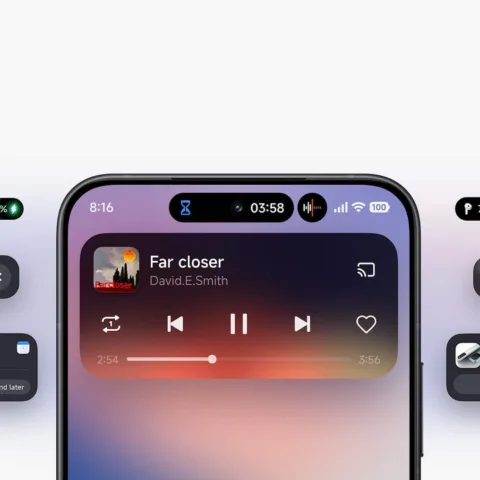On Thursday, BlackBerry unveiled its latest mobile phone, the Z30, in Kuala Lumpur, and officially announced the availability of its cross platform BlackBerry Messenger (BBM) apps in Jakarta. In the mean time, the Wall Street Journal says that BlackBerry is planning to cut up to 40 percent of its workforce.
Launching its products in Kuala Lumpur and Jakarta shows how much the company has needed to shift its focus. The company has lost the US market to Android and iOS and in much of Europe, few pay attention to BlackBerry anymore. The company’s strongest markets are now in the southern hemisphere and Southeast Asia remains its major, though fading stronghold.
Speaking at the launch of BlackBerry Messenger for iOS and Android, Krishnadeep Baruah, the company’s Senior Director Marketing Asia Pacific for BBM, said that the company has 60 million active BBM users, half of which belong to at least one BBM group. The average user spends up to 90 minutes per day on BBM, checking and sending up to 10 billion messages on a daily basis, he said. He noted to the laughter of the audience that Indonesians spend longer than 90 minutes a day on BBM but did not specify how long.
BlackBerry’s adoption in Indonesia had been strongly or perhaps even solely tied to the use of BlackBerry Messenger. For the past couple of years, those who are sticking to BlackBerry have only said two reasons to keep using its hardware.
The first reason is BlackBerry Messenger. BBM is so entrenched among many Indonesians that asking for and exchanging BBM PINs have become a standard greeting ahead of exchanging business cards. People for a long time simply assumed that everyone uses a BlackBerry.
The majority of people who still maintain their BlackBerry devices say that they need it for BBM. Their work contacts, colleagues, and even family members rely on BBM for communications so much that asking them to switch to another messaging service is simply not feasible.
The availability of BBM for Android and iOS will without a doubt push those consumers even further away from BlackBerry’s devices as many of them are already using an iOS or Android device in addition to their BlackBerry.
The second reason people stick to BlackBerry is the fact that it’s one of the few mobile phone vendors that still offer devices with physical keyboards. Sure, there are offerings from other vendors that feature physical keyboards but the lack of BBM easily sets those options aside.
BlackBerry’s hardcore users champion its keyboards which arguably offer superior typing experience, but the mobile world is moving away from physical keyboards and the company can’t rely on this relatively small group of consumers to maintain its business.
Baruah said that BBM is special and different from its competitors because of its security and features. Unfortunately for BlackBerry, there are now over a dozen messaging apps offering similar or better features. Getting consumers to switch or return to BBM would be a challenging task. He also said that because there isn’t a clear leader in messaging service, there’s no reason why BBM can’t make a dent or even seize the market.
It’s very unlikely that there will ever be a clear leader among these messaging platforms and services especially as consumers tend to be on several of them instead of just one or two. This means BlackBerry Messenger may have a chance to survive in one form or another if enough people still see it as a viable communications tool.
The plan that was first revealed in early 2011 has finally come to fruition. The company is even considering a spin off of its BBM division. Few believed that BlackBerry would actually pull it off as it would trigger a possible shut down of its handset business, but with that side of the company already hemorrhaging anyway, losing 5000 employees at the end of 2012 and about to lose 5000 more by the end of this year, focusing on messaging now may be the only thing that keeps it from a certain death although it may well be too late.
[Header image from Shutterstock]










